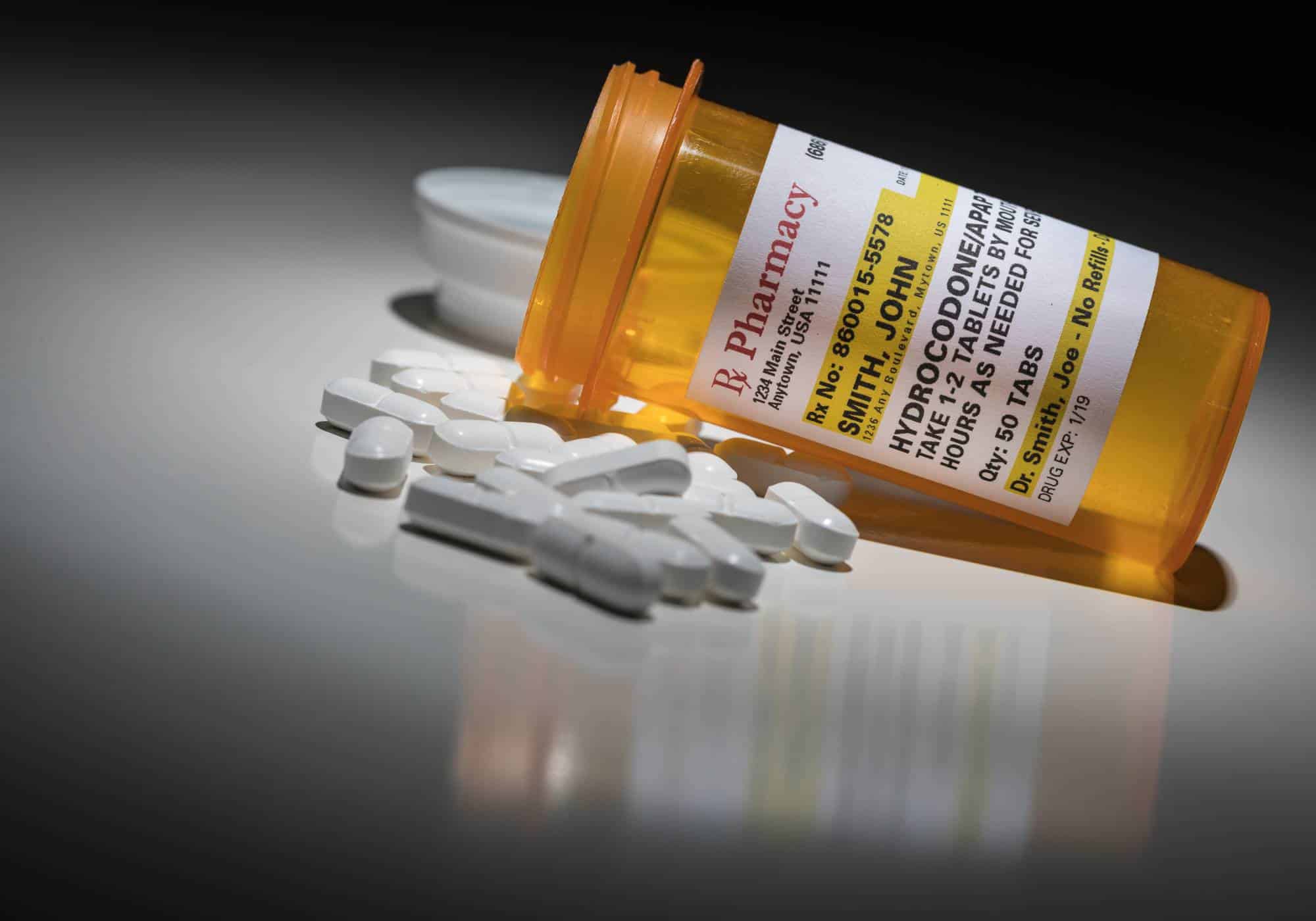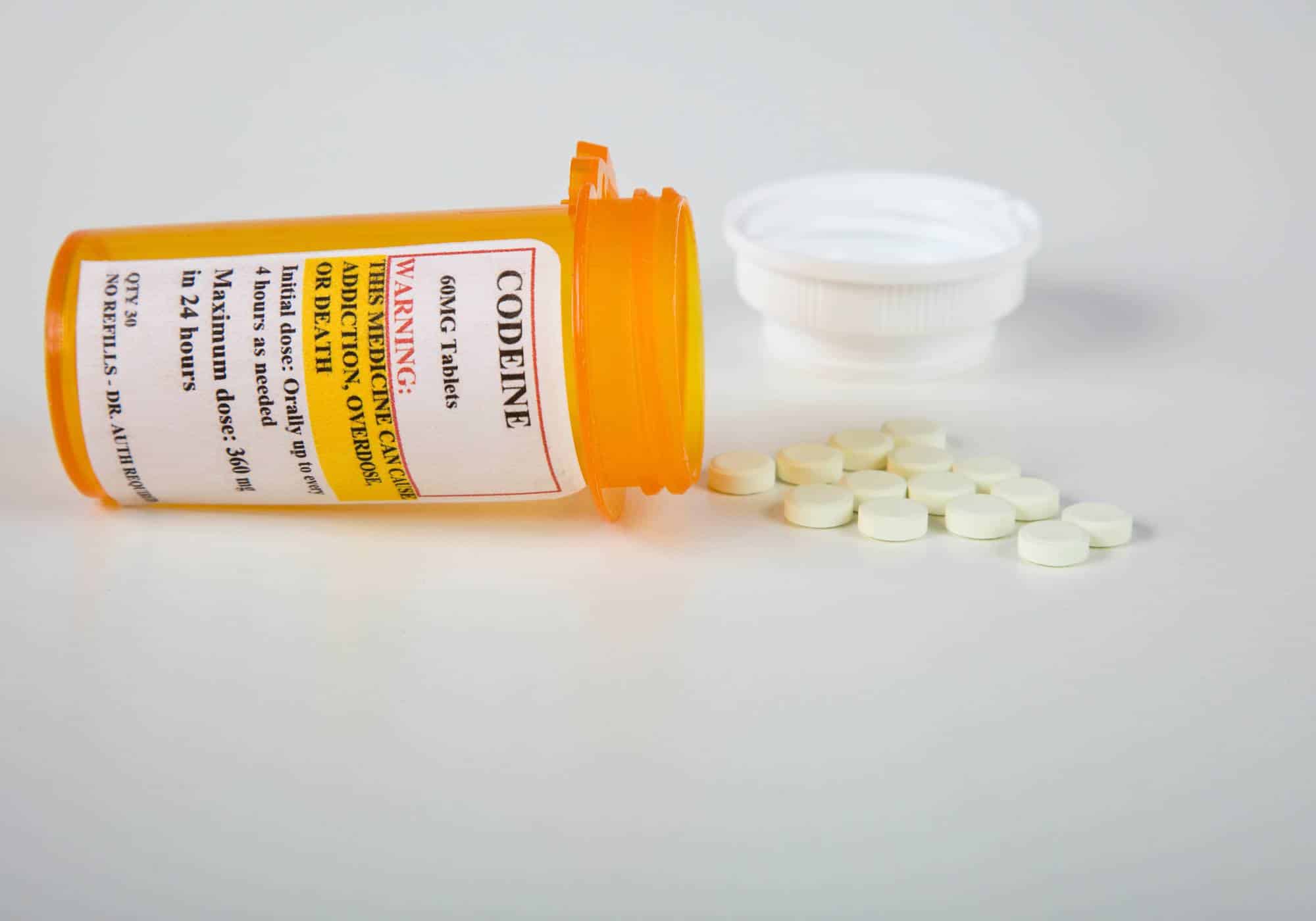Withdrawal is a difficult and multifaceted experience that frequently occurs alongside substance abuse or dependency. It can be both physically and emotionally demanding, emphasizing the importance of comprehending its definition, symptoms, causes, and ways to support those enduring it. In this detailed guide, we explore the nuances of drug withdrawal, offering clarity and crucial insights for affected individuals and their support networks.
What is Drug Withdrawal?
Drug withdrawal encompasses the range of physical and psychological symptoms experienced when an individual who has become dependent on a substance like drugs or alcohol suddenly decreases or discontinues use. This reaction results from the body adjusting to the lack of a substance it has grown accustomed to over a period of time. The severity and nature of withdrawal symptoms can differ greatly based on the type of substance used, the degree of dependency, and personal health factors.
Signs of Drug Withdrawal
Knowing the signs of drug withdrawal is crucial for effectively navigating this challenging phase. The severity and characteristics of withdrawal symptoms can vary widely, influenced by factors such as:
- Length of drug addiction
- Type of drug used
- Amount of drug consumed
- Methods of drug use (methods like snorting, smoking, or injecting can intensify withdrawal symptoms compared to oral consumption)
- Use of multiple substances simultaneously
- Genetic background and family history of addiction
- Overall physical and mental health
Withdrawal typically starts with a ‘comedown’ phase, where the drug’s immediate effects begin to wane, and the brain starts adjusting back to its normal state. Recognizing and managing this phase is a critical step in the withdrawal process.
Common Symptoms of Drug and Alcohol Withdrawal
When the effects of drugs or alcohol start to diminish and you cease using them, the withdrawal stage begins. This phase includes both physical and psychological symptoms that can vary in severity:
- Nausea and vomiting
- Headaches
- Fluctuations in body temperature or chills
- Heart palpitations
- Increased sweating
- Tremors or shivering
- Restlessness
- Depression
- Anxiety and paranoia
- Insomnia and panic attacks
- Irritability and agitation
- Strong cravings for the substance
One of the most severe forms of withdrawal is known as ‘delirium tremens’ (DTs), characterized by:
- Visual or auditory hallucinations
- Seizures
These symptoms require careful management as they can lead to significant health complications and may be life-threatening. Seeking professional medical help is crucial for safely navigating through these intense withdrawal symptoms, especially for those experiencing delirium tremens.
Can you Die From Drug Withdrawal?
Withdrawal from certain substances, like alcohol and benzodiazepines, can be extremely severe and sometimes life-threatening, although such outcomes are relatively uncommon.
For alcohol withdrawal, one particularly serious condition is known as delirium tremens, which can lead to severe seizures and potentially death if not managed promptly and effectively. While only a small percentage (less than 5%) of those withdrawing from alcohol experience delirium tremens, it has a high mortality rate of about 15% when left untreated.
Opioid withdrawal, while generally not life-threatening, can cause intense discomfort. A major risk for individuals attempting to quit opioids without medical help is the high likelihood of relapse. Relapse can be especially dangerous if a period of abstinence has reduced the person’s tolerance to opioids, significantly increasing the risk of overdose when opioid use is resumed.
Medical detoxification plays a critical role in such scenarios. Under the supervision of healthcare professionals, medical detox helps manage withdrawal symptoms, alleviate discomfort, and reduce the risk of severe complications, including death. This level of medical care not only supports the initial stages of recovery but can also be life-saving, highlighting the critical need for medical oversight during withdrawal.
Understanding the Causes of Drug Withdrawal
Drug withdrawal occurs as the body and brain, having adapted to the constant presence of a substance, must suddenly adapt to its absence. This adjustment process can lead to the development of withdrawal symptoms. Key factors contributing to withdrawal include:
- Substance Dependence: Regular and prolonged use of substances such as drugs or alcohol often leads to both physical and psychological dependence, setting the stage for withdrawal symptoms upon cessation.
- Tolerance: As tolerance to a substance builds, increasingly larger doses are needed to feel its effects, which heightens the likelihood of experiencing withdrawal symptoms once the use is reduced or stopped.
- Sudden Cessation: Stopping drug use suddenly, rather than easing out gradually, typically causes more intense withdrawal symptoms, making this approach riskier.
These factors illustrate why withdrawal can be a challenging process and highlight the importance of managing it carefully, preferably under medical supervision.
Understanding the Withdrawal Experience
Withdrawal is a highly individualized experience, influenced by a variety of factors, making it unique to each person. These factors include:
- Substance Type: The nature of the substance involved greatly affects the withdrawal process. For example, the symptoms experienced during opioid withdrawal can be quite different from those encountered during alcohol or benzodiazepine withdrawal.
- Duration of Use: The length of time a person has been using a substance significantly affects the severity of the withdrawal. Typically, longer periods of use lead to more pronounced withdrawal symptoms.
- Dosage and Frequency: The severity of withdrawal symptoms can also be influenced by how much and how often the substance was used. Higher dosages and more frequent use tend to exacerbate withdrawal symptoms.
- Individual Differences: Personal factors such as genetic predisposition, overall health, and specific brain chemistry also play critical roles in how withdrawal is experienced. Some people may naturally be more resilient, while others might face more severe challenges during withdrawal.
These variables highlight why withdrawal experiences can differ so significantly from person to person, underlining the importance of personalized care and treatment approaches.
Which Drugs Lead to Withdrawal Symptoms?
Withdrawal symptoms are commonly experienced when discontinuing use of substances that cause physiological dependence. The severity and characteristics of withdrawal can vary depending on the substance involved. Below is a detailed list of substances known to induce withdrawal symptoms:
- Alcohol: Withdrawal can vary from mild discomfort to severe complications like delirium tremens.
- Benzodiazepines, Barbiturates, and Other CNS Depressants: Known for their sedative effects, stopping these can result in symptoms such as anxiety, agitation, and in extreme cases, seizures.
- Marijuana: Despite perceptions of being less addictive, marijuana can cause withdrawal symptoms, especially in long-term or heavy users.
- Heroin, Opiates, and Prescription Opioids: This category includes commonly prescribed painkillers, and withdrawal often mimics severe flu symptoms, making it particularly difficult.
- Cocaine, Crack, Methamphetamine, and Other Stimulants (including MDMA, Adderall, and Ritalin): Withdrawal from stimulants typically includes psychological effects like depression and intense cravings.
- Fentanyl: A potent opioid, fentanyl withdrawal is known for intense discomfort and strong cravings.
- Kratom: Sometimes used as a substitute for opioids or to manage withdrawal, kratom can also cause dependency and withdrawal symptoms similar to opioids.
- Adderall: Often prescribed for ADHD, withdrawal from Adderall can lead to mood swings, fatigue, and depression.
Understanding the specific withdrawal challenges associated with each substance is essential. Managing these symptoms often requires professional medical supervision to ensure safety and comfort during the recovery process. If you or a loved one is facing withdrawal, seeking professional assistance is crucial for a safer and more effective recovery.
Drug Withdrawal Timelines: Duration and Symptoms
The time it takes to fully withdraw from a drug varies widely based on the specific substance involved and the extent of dependency. The duration of withdrawal can range from a few days to several weeks, and in certain cases, even months. This variability is influenced by individual physiological factors and the level of dependency.
Here is a general guide to the expected withdrawal timelines for various substances:
- Alcohol Withdrawal: Symptoms may begin just a few hours after the last drink, typically peaking between 24-72 hours. Delirium tremens, a severe form of withdrawal, can develop 48-72 hours after cessation of heavy drinking, lasting 3-4 days and up to 8 days in some cases.
- Short-Acting Opioids (e.g., Heroin, Prescription Painkillers): Withdrawal symptoms can start 8-24 hours after the last use, generally lasting about 4-10 days.
- Longer-Acting Opioids (e.g., Methadone): Symptoms may not appear until 2-4 days after cessation, with the withdrawal process typically resolving within 10 days.
- Benzodiazepines (e.g., Xanax, Valium): Withdrawal can begin within 1-4 days of stopping use, peaking during the first two weeks. In some instances, prolonged withdrawal symptoms can continue for months or even years if not properly managed.
It’s important to remember that these timelines are approximate and can vary depending on individual circumstances. Knowledge of these timelines is essential for those experiencing withdrawal and their support networks, as it assists in planning for the withdrawal process and ensuring the availability of medical support.
Withdrawal often involves both physical discomfort and psychological challenges, underscoring the importance of a well-rounded treatment approach. This comprehensive care is crucial not only for managing symptoms but also for addressing the psychological aspects of recovery, helping individuals navigate the complex journey toward long-term sobriety.
Alcohol Withdrawal
For those with significant alcohol dependence, withdrawing can be hazardous and should never be done abruptly or “cold turkey.” The abrupt cessation can lead to seizures and other serious health issues, ranging from mild discomfort to life-threatening conditions if not properly managed through medical detoxification.
Alcohol acts as a central nervous system (CNS) depressant. When its use is suddenly reduced or stopped after prolonged dependency, it can cause a dangerous excitation in the nervous system, disrupting the body’s equilibrium and triggering various withdrawal symptoms soon after the last drink. These symptoms can persist for several days and may include:
- Elevated blood pressure
- Racing pulse
- Excessive sweating
- Insomnia
- Physical tremors
- Anxiety and agitation
- Headaches
- Nausea and vomiting
- Hallucinations
- Seizures
It’s challenging to predict who will experience severe withdrawal and complications. Factors that increase this risk include the typical quantity and frequency of alcohol intake, overall health conditions, a history of substance use, and previous alcohol withdrawal experiences.
Delirium tremens, a particularly acute form of alcohol withdrawal, can develop a few days after the last consumption and may occur suddenly. Due to these risks, it is often safest to manage alcohol withdrawal under continuous medical supervision.
Recognizing and understanding the complexities of alcohol withdrawal is vital for anyone looking to address alcohol dependence. Professional medical oversight provides the safest and most effective approach to recovery, ensuring that withdrawal is managed with the utmost care.
Heroin and Opioid Withdrawal
Heroin and other opioids function by activating opioid receptors in the body, which in turn release dopamine in the brain, reinforcing their use due to the pleasurable effects they induce.
Opioids are potent pain relievers used medically to manage pain from injuries, illnesses, or surgeries, but they are also highly addictive and prone to misuse. Even when prescription painkillers are used as directed, dependence can develop rapidly.
Misuse of these medications greatly heightens the risk of developing a physical dependence, underscoring the need for cautious use under medical guidance.
Symptoms of Opioid Withdrawal
Individuals undergoing opioid withdrawal may experience a variety of symptoms, such as:
- Nervousness or anxiety
- Sleep disturbances
- Frequent yawning
- Nausea and diarrhea
- Flu-like symptoms, including fever and chills
- Muscle cramps and body aches
- Runny nose
- Excessive sweating
- Temperature fluctuations, experiencing hot and cold flashes
- Goosebumps
Withdrawal from opioids like heroin and prescription opiates, although not usually life-threatening, can be intensely uncomfortable and is often likened to a severe case of the flu. This discomfort can cause considerable physical and psychological distress.
Improperly managed, the pain of opioid withdrawal can quickly drive a person back to drug use, interrupting the recovery process and increasing health risks. It is crucial, therefore, to manage opioid withdrawal under medical supervision to ensure a safe and effective recovery pathway.
Common Opioids Known to Cause Withdrawal Symptoms
Understanding the nuances of opioid withdrawal is essential for those seeking to overcome dependence and for their support networks. Professional medical support not only alleviates the distress associated with withdrawal but also facilitates a smoother, more successful journey toward long-term recovery.
Benzodiazepine Withdrawal
Benzodiazepines, often referred to as “benzos,” are medications commonly used to treat anxiety, panic disorders, and some types of seizure disorders.
As central nervous system (CNS) depressants, benzodiazepines work by boosting the activity of gamma-aminobutyric acid (GABA) receptors in the brain. This increase in GABA activity leads to greater brain inhibition, producing a calming effect that is useful for therapeutic purposes.
Some of the most frequently prescribed benzodiazepines include:
- Xanax
- Ativan
- Klonopin
- Valium
Symptoms of Benzodiazepine Withdrawal
Those discontinuing benzodiazepines might face various withdrawal symptoms, such as:
- Anxiety
- Agitation
- Excessive sweating
- Increased heart rate
- Sleep disturbances
- Nausea and vomiting
- Hallucinations
- Seizures
While benzodiazepines are highly effective when used under medical supervision for managing anxiety and other conditions, misuse can lead to significant dependence. It is vital for individuals on long-term benzodiazepine therapy to understand these risks. Additionally, anyone experiencing withdrawal symptoms from benzodiazepines should seek medical guidance. The withdrawal process can be complex and demands professional oversight to ensure it is managed safely and effectively.
Cocaine Withdrawal
Cocaine is a potent stimulant that powerfully affects the brain’s reward system by blocking the reuptake of dopamine, thereby enhancing feelings of euphoria and reward. This action can lead to compulsive use and a physiological dependence on cocaine.
When someone stops using cocaine suddenly, significant mood changes can occur. Withdrawal symptoms might start within the first day of cessation and can last for several weeks.
Symptoms of Cocaine Withdrawal
Cocaine withdrawal primarily impacts psychological health, though it is usually not physically dangerous. Symptoms include:
- Depressed mood or feelings of sadness
- Increased fatigue or lethargy
- Altered sleep patterns, including insomnia or excessive sleeping
- Anxiety and unease
- Irritability and frustration
- Paranoia or irrational suspicions
- Increased appetite
- Difficulty concentrating or focusing
- Slowed thinking and physical movement
- Intense cravings for cocaine
Although cocaine withdrawal may not pose physical dangers, the psychological effects can be severe and profoundly disruptive. It is crucial for those experiencing cocaine withdrawal to seek professional assistance. Access to expert guidance and support during withdrawal is essential for a safe and successful recovery, helping individuals navigate this challenging period effectively.
Supporting Yourself or a Loved One Through Withdrawal
Navigating withdrawal is a tough but vital part of the journey to recovery. Here are several effective strategies to help yourself or a loved one during this time:
- Seek Professional Help: Consulting a healthcare provider or addiction specialist is crucial. They can offer valuable advice, prescribe medications to ease symptoms, and monitor the recovery process.
- Build a Support System: It’s important to have a network of supportive friends and family who understand the challenges of withdrawal and can offer encouragement.
- Maintain Proper Nutrition and Hydration: Keeping hydrated and eating nutritious food can help lessen some of the physical withdrawal symptoms.
- Practice Self-Care: Engaging in self-care activities such as meditation, relaxation techniques, and light physical exercise can help manage emotional and physical stress.
- Follow a Treatment Plan: Adhering to a treatment plan and regularly attending therapy sessions or support groups is critical for successful recovery.
- Stay Positive: Keeping a positive mindset is essential. Remind yourself or your loved one that withdrawal, although difficult, is a crucial step toward a healthier life.
- Avoid Triggers: Recognize and steer clear of situations or individuals that could reignite the urge to use substances.
Withdrawal marks a significant step in overcoming addiction, and understanding how to navigate its challenges effectively is crucial for recovery. Seeking professional guidance and cultivating a robust support network are indispensable in transitioning to a substance-free lifestyle.
Drug Withdrawal Treatment at Hope Harbor Wellness
Located in the serene suburbs of Atlanta, Hope Harbor Wellness is your ally in the fight against drug addiction in Atlanta. Our drug rehab center, dedicated to holistic recovery, is ideally situated to offer you the support you need.
Our compassionate outpatient program collaborates with top-tier medical drug detox facilities, ensuring a safe and effective detox process. Once free from addictive substances, you can seamlessly transition into one of our specialized outpatient treatment programs at Hope Harbor Wellness, designed to address substance use disorders:
- Outpatient Rehab: A flexible program tailored to fit into your daily life.
- PHP (Partial Hospitalization Program): Offers a structured yet non-residential approach to treatment.
- IOP (Intensive Outpatient Program): Provides more intensive care while allowing you to maintain daily responsibilities.
- Dual Diagnosis Treatment Program: Caters to those with co-occurring mental health disorders.
Our drug addiction treatment programs incorporate a variety of interventions:
- MAT (Medication-Assisted Treatment): Utilizes medications to ease withdrawal symptoms and cravings.
- Psychotherapy: Addresses underlying psychological aspects of addiction.
- Group Therapy: Offers peer support and shared learning experiences.
- Individual Counseling: Provides personalized guidance and support.
- Family Therapy: Helps heal and strengthen family relationships.
- Holistic Therapies: Focuses on overall well-being, including physical, emotional, and spiritual health.
- Aftercare: Ensures ongoing support post-treatment.
Embark on your journey from addiction to recovery with Hope Harbor Wellness. Trust in our dedicated team to guide you every step of the way. For more information on drug withdrawal treatment in Atlanta, GA or to start your journey, call our admissions team at 678-605-9725.












